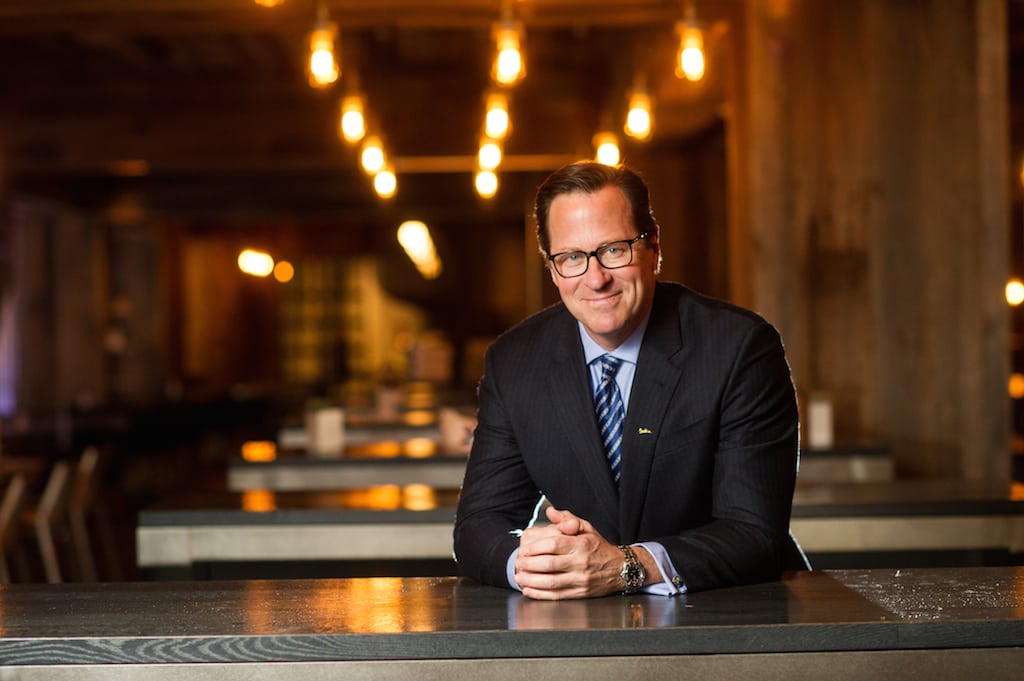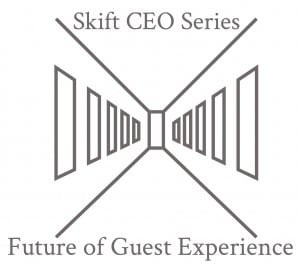Skift Take
Hotel brands have to strike a balance between listening to customers' current needs and anticipating their future desires, a strategy that takes seamless technology and conscious employees.
Editor’s Note: This interview is part of Skift’s CEO interview series. This particular series is with hospitality CEOs talking about the Future of the Guest Experience and the evolving expectations and demands of hotel guests. Check out all the interviews as they come out here. Also, enjoy the previous series on the Future of Travel Booking, with online travel CEOs.
Carlson Rezidor Hotel Group is in the midst of a brand revamp, launching new brands and reenergizing old ones like Radisson and Country Inn and Suites. The group recently launched two new hotel brands: Radisson Red targeted towards design-conscious young guests and the Quorvus Collection consisting of independent luxury hotels.
David Berg was appointed the COO of Carlson in 2013, charged with leading and managing the company’s global hotel business Carlson Rezidor Hotel Group, which includes more than 1,300 hotels under six brands.
Coming off a number of executive roles at restaurants and retails including Outback Steakhouse, GNC, and Best Buy, he brings a fresh perspective to the challenge of refining the guest experience in his first hospitality role.
An edited version of our interview with Berg follows:
Skift: What are some of the biggest challenges that you’re facing to improve the guest experience today?
David Berg: I should probably start by saying that we look at challenges as opportunities. Our foundational belief is that we really need to listen to our guests and make sure that, what we call, guest-centric decision making is present through the entire organization. From the cleaning crew to the COO, we make sure that the guest is at the center of all of our decision making.
I think some of the challenges are really staying ahead and anticipating guests’ expectations, which requires us to make sure that we’re listening. I think that the stakes just continue to get higher for delivering great experiences. A big area of focus for us is looking at how we make the experience more personalized for each of our guests. We like to call this “creating bright spots for our guests.”
We recently undertook a global study examining the entire customer experience from pre-stay to post-stay and identified some hundred-plus touch points that a guest would identify when he or she decides to go to hotel, stay at a hotel, and then leaves a hotel. Those are a hundred-plus challenges or opportunities for us, to make sure that we’re anticipating what the guests want. It’s our responsibility to make sure that we’re listening to the customer so we can satisfy them and they have a delightful experience.
Skift: What are some of the biggest changes you’ve seen in guest expectations and demand?
Berg: We certainly believe that a hotel has to be clean, safe, and welcoming, but that’s barely the price of admission these days. I came out of retail and restaurants and retail so I think there are a lot of comparisons. One of them is the access to information that our guests now have and their expectations for a real-time response. It’s no longer the case where you leave a hotel and a week later you talk about either the great or lousy experience that you had. That’s right in the moment now. I think that’s a significant change that we’ve seen.
From a retail comparison, the mass Sunday circular, buy-one get-one free newspaper ad is a relic in our business. It’s really about how we make it personal to the guest so that when they come to our hotel we know what their needs are and we can try to address them the best that we can. I fly hundreds of thousands of miles a year and it never ceases to amaze me that Delta still doesn’t know Fresca is my favorite drink when I sit down.
Skift: Have there been any unexpected changes in guest expectations or demand?
Berg: Access to information has really accelerated and it’s something that we need to continue to anticipate. We know that the average guest looks at fourteen different hotels before she books a room. In retail, as an analogy, big box retailers often become showrooms where folks will come in, learn about a product or a service, and then have multiple distribution points where they’ll buy it.
The other thing that’s unexpected, in my opinion, is that things that were once differentiators have very quickly become requirements. For example, there’s a rising expectation that hotels not only have great Internet service, but are also on the cutting edge of technology. When guests come into a hotel, they want to see and experience something new from a technology standpoint.
Skift: What role does technology play in improving the guest experience? Is consumer-facing or back-end technology more important or effective at improving the guest experience?
Berg: It’s really hard to separate the two. We always start with asking, “What’s the guest insight? What are we trying to address? What is the guest asking for?” If technology can help us address that issue via a customer-facing application then we’ll build that. Clearly you’ve got to have the backend that supports it.
Again, going back to my retail days, you could have a very sexy awesome looking product on the shelf, but if you don’t have the supply chain and distribution channel to put that product in stores then it’s not going to work.
In my opinion, you can’t separate the two, but we always start with asking, “What is the guest asking for? Are we anticipating the guest’s needs and desires?” Then we use technology to deliver on that.
Skift: Has the Radisson Red app been rolled out? If so, what kind of usage have you seen?
Berg: We haven’t rolled out the Radisson Red app yet, but we do have an app called iConcierge that allows guests to use their smart device to order room service, an extra pillow, or local show tickets. We piloted the app last year and are rolling it out this year. if you want to order room service or you want to order an extra pillow or you want to order tickets to a show in what local community where we’re staying. We piloted that program last year and they’re rolling it out this year.
What this underscores is the increasing need to have mobile apps. This underscores is clearly this movement towards the need to have mobile apps. I was at Hi-Tech in Hong Kong a couple of weeks ago where leaders from Facebook and Travelocity both said that more than sixty percent of their traffic in China comes from mobile smart devices. As we think about international and millennial-minded guests, the ability to have app for smart devices is critical for us.
Skift: Carlson Rezidor has hotels located around the world. How do guest expectations change based on location?
Berg: There are a lot of commonality in what guests generally expect. We allow our franchised, managed and owned hotels to tailor the product and services for a particular market. If I go back to my restaurant days, it’d be 70 percent core items and 30 percent localized items.
You’ll never not know that you’re in a Radisson or a Country Inns & Suites whether you’re in Seattle or Singapore, but we do allow for some individuality tailored to our guests in those local markets.
Skift: Has hiring changed or evolved at all over the years to match these changes in guest expectations?
Berg: Hiring is one of the things that we’re proudest of. We want to make sure that we hire folks who are reflective of the guests and have a service-oriented, caring spirit. We hire folks that know how to deliver a great guest experience and we train on that. One of things that I think we’re quite unique in is unleashing the power of our people and really allowing our individuals to bring their unique skills and capabilities into the work place.
For example, we hand out an “Employee of the Year” award at our annual convention. This year it was given to a woman name Marsha who is the breakfast hostess at the Country Inns & Suites in Hanover, Virginia. It’s a self-service model but Marsha hugs the guests.
I can assure that nowhere in our written standard operating policies is there a page that says, “Everyone should hug a guest.” The number of letters and comments that we get about Marsha and her ability to engage guests is phenomenal. As proud as we are of Marsha, I am equally as proud that her general manage allowed her to bring that into the workforce.
I think it’s really, really important that we actually have sort of the courage to allow folks to bring their unique skills into the workforce.
Skift: What is your view on the increase in hotel fees across the industry?
Berg: I would ask you, as a guest, how do you like it? How does the guest feel when they checked into a hotel with a $100 rate and when they checked out it ended up being a $150. I don’t think it’s very positive. Looking at the aviation industry, I certainly understand the profitability that they’ve driven through fees, baggage fees or change fees, but it does not feel very guest-centric to me.
Skift: What other lessons have you taken from the retail and restaurant world and applied to hospitality?
Berg: I think the one universal lesson is absolutely making sure that we’re listening to our customers and guests and delighting them in the moment. Even if there’s a problem, our associates need the authority, freedom, and confidence that they can solve problems without having to consult the three-ring notebook or make six calls. They can actually make the guest experience relevant and solve a problem in the moment.
Have a confidential tip for Skift? Get in touch
Tags: carlson rezidor, executives, foge, radisson
Photo credit: David Berg overses the hotel division of the Carlson Rezidor Hotel Group. Carlson Rezidor Hotel Group

